Sean Murray is the President and Chief Editor of deBanked and the founder of the Broker Fair Conference. Connect with me on LinkedIn or follow me on twitter. You can view all future deBanked events here.
Articles by Sean Murray
Smaller Funder? How to Get Fast Tracked With Big Investors
December 4, 2024Looking for big money? As a smaller funder your simple financial reports might not cut it when it comes to big investors. In fact, it’s a complaint frequently made by investment bankers and institutional funds looking to get capital deployed in the revenue-based financing space.
“Smaller originators face three key hurdles: first, the lack of institutional-grade portfolio performance and consistency; second, limited data operations and analytics capabilities; and third, a shortage of affordable resources and expertise to close these gaps and engage effectively with capital markets,” said Tomo Matsuo, Managing Partner of AdvanceIQ.ai., “AdvanceIQ.ai was launched to address these challenges head-on through tailored solutions like our new Portfolio Pulse product.”
The Portfolio Pulse is a simple yet robust tear-sheet product that delivers a high-level, third-party validated snapshot of portfolio performance. Designed as a cost-effective tool, it helps funders build credibility and engage institutional investors with confidence. Seamlessly integrating with most industry CRMs, it generates investor-ready metrics tailored for early-stage conversations, enhancing transparency and trust.
But Portfolio Pulse is just one piece of AdvanceIQ.ai’s broader suite of tools. From risk scoring and intelligent lead routing to dynamic portfolio analytics, AdvanceIQ.ai equips funders with the insights and resources to scale efficiently while building investor confidence. These offerings include tools like the SMB Risk Index (SRI), a proprietary scoring system designed for the SMB AltLending sector to predict and enhance asset performance.
Excerpts from Portfolio Pulse:
• Trailing twelve-month (TTM) origination metrics and performance trends.

• Distribution and performance insights segmented by key attributes, including the proprietary SMB Risk Index (SRI).

• Historical repayment trends via collection curve analysis.
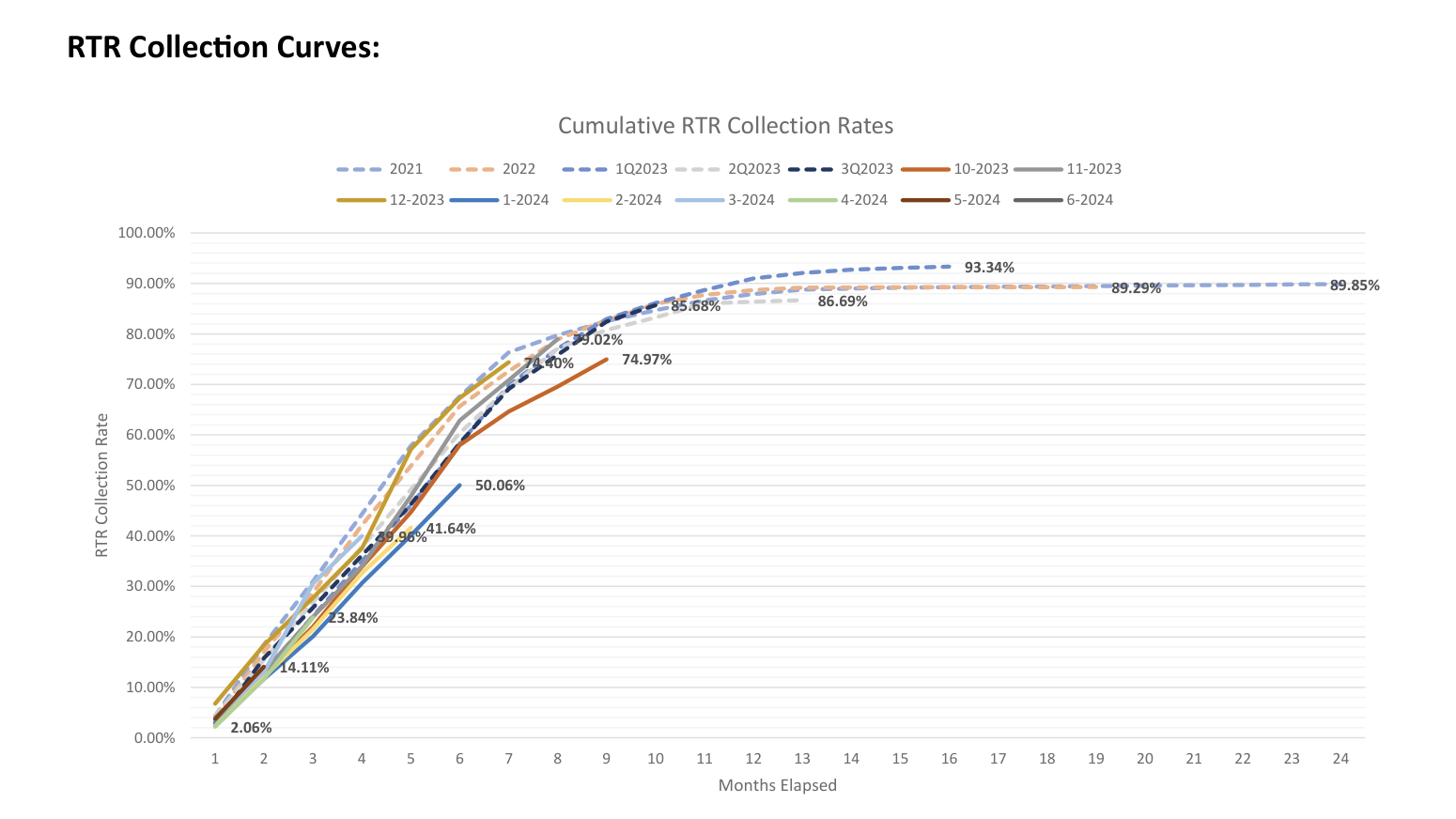
“High-quality reporting is an essential first step for smaller funders to break into institutional markets,” Matsuo noted. “Our goal is to provide the transparency and insights that empower them to succeed.”
With deep experience in the SMB AltLending space, Matsuo is no stranger to the challenges funders face. “Having been involved in raising and managing hundreds of millions of dollars in both debt and equity, I’ve seen how difficult it can be for smaller originators to stand out. AdvanceIQ.ai’s offerings are designed to remove those barriers and position them for growth.”
CAFE’s Fall 2024 Accelerator Cohort a Success
November 25, 2024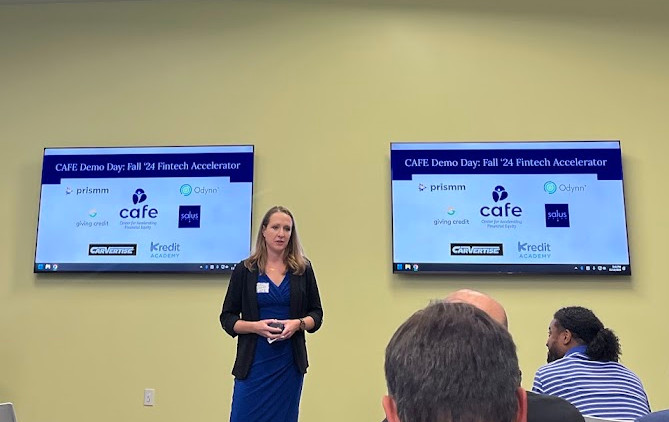 deBanked attended and sponsored the final demo day of CAFE’s Fall 2024 Accelerator Cohort. CAFE, as previously profiled, is the non-profit Center for Advancing Financial Equity. The six members of the Cohort were Carvertise, GivingCredit, Kredit Academy, Odynn, Salus, and Prismm.
deBanked attended and sponsored the final demo day of CAFE’s Fall 2024 Accelerator Cohort. CAFE, as previously profiled, is the non-profit Center for Advancing Financial Equity. The six members of the Cohort were Carvertise, GivingCredit, Kredit Academy, Odynn, Salus, and Prismm.
As previously stated, the bi-annual accelerator aims to identify, support and grow extraordinary financial accelerated technologies and innovations. Hundreds of companies apply but only six get selected for each cohort.
The demo day took place inside the Fintech Innovation Hub, situated on University of Delaware’s STAR campus. It was a major success.
To learn more about CAFE, visit: https://ftcafe.org/
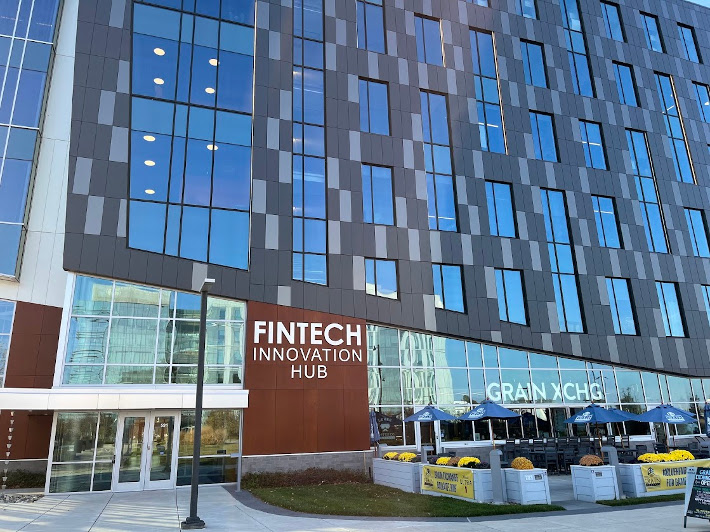
Are You The Top Broker?!
November 21, 2024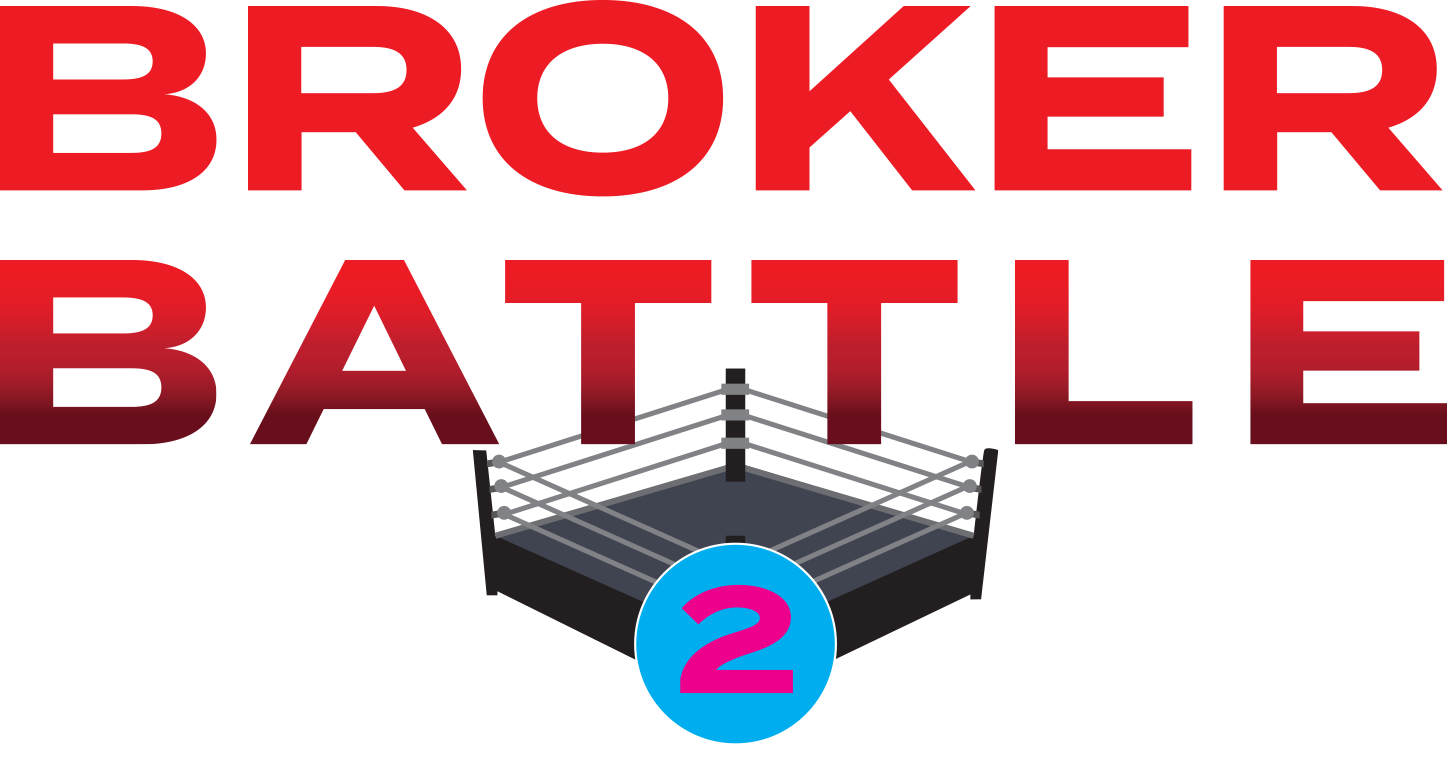
Broker Battle returns on February 20, 2025 at deBanked CONNECT MIAMI. The competition, now the 2nd ever after last year’s very successful launch, is back with an improved format that allows for almost any qualified broker the opportunity to be tested LIVE in person. Broker Battle TWO will also have 3 separate broker categories versus last year’s catch-all. Those categories are Revenue Based Finance, SBA Lending, and Equipment Financing.

All competing brokers will be vetted, tested, and scored through very short judging rounds on the showcase floor. The two top scores from each category will actually compete on stage for the championship.
That means that as opposed to last year’s 6 total contestants and 7 separate battles on stage, this year’s competition could feasibly manage up to 100 contestants for which there will only be 3 total battles on stage (each being a championship). The format allows for more brokers to prove themselves in person while reducing total stage time for the final grand performance.
Each broker will win a cash prize and the distinction of being Top Broker (in their category). To be eligible for entry, you must be an active broker with good ethics and a positive reputation. You must also be registered to attend deBanked CONNECT MIAMI where it will take place and enter yourself in the battle itself here.
Broker Battle intends to foster best practices.
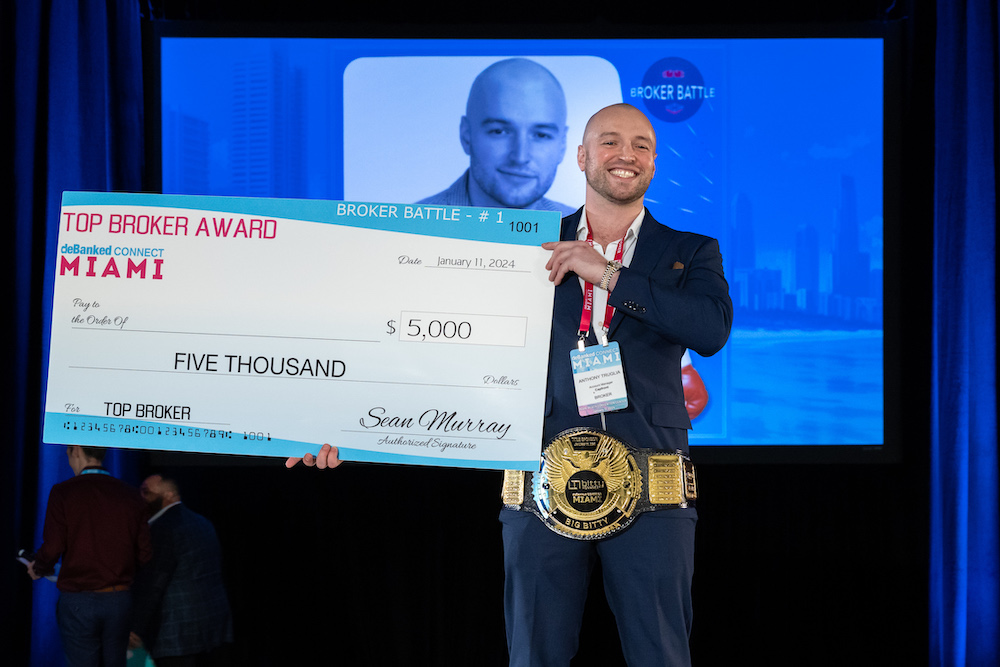
Rewarding Loyalty in Revenue Based Finance
November 13, 2024 Everyone’s heard the pitch that if a deal goes well there could be better terms on the next one, but how much better are we talking about precisely? Well, after conducting an internal study, Pennsylvania-based Funding Metrics decided to actually codify incentives for success into a fully fledged loyalty rewards program that enables merchants to get a precise factor rate reduction, origination fee discount, and additional estimated remittances on subsequent advances.
Everyone’s heard the pitch that if a deal goes well there could be better terms on the next one, but how much better are we talking about precisely? Well, after conducting an internal study, Pennsylvania-based Funding Metrics decided to actually codify incentives for success into a fully fledged loyalty rewards program that enables merchants to get a precise factor rate reduction, origination fee discount, and additional estimated remittances on subsequent advances.
“Early 2023 we took a deep dive into our customer experience and how it directly correlated to merchant retention,” said Melissa Flagg, Vice President of Operations for Funding Metrics. “We listened to the pain points our ISOs shared, with customer retention always driving the conversation. Most ISOs we spoke with seemed to face similar retention challenges and were coming up short with solutions.”
The challenge is that merchants tend to shop around on subsequent deals even if they are happy with what they got the first time. The loyalty program was the eventual outcome of what they learned and it’s open to merchants funded by Lendini and Quick Fix Capital. As Flagg tells it, there are three ways for merchants to accrue points. First, points simply for opting in, which they must do in order to take advantage of it. Second, additional points for each 1% they remit toward the purchased amount, and third, points for each renewal. There are six total milestones that range from Bronze Level to Diamond+ Level. While the tiers, conditions, and corresponding discounts are published right on their website, merchants can easily track their points through the Funding Metrics mobile app.
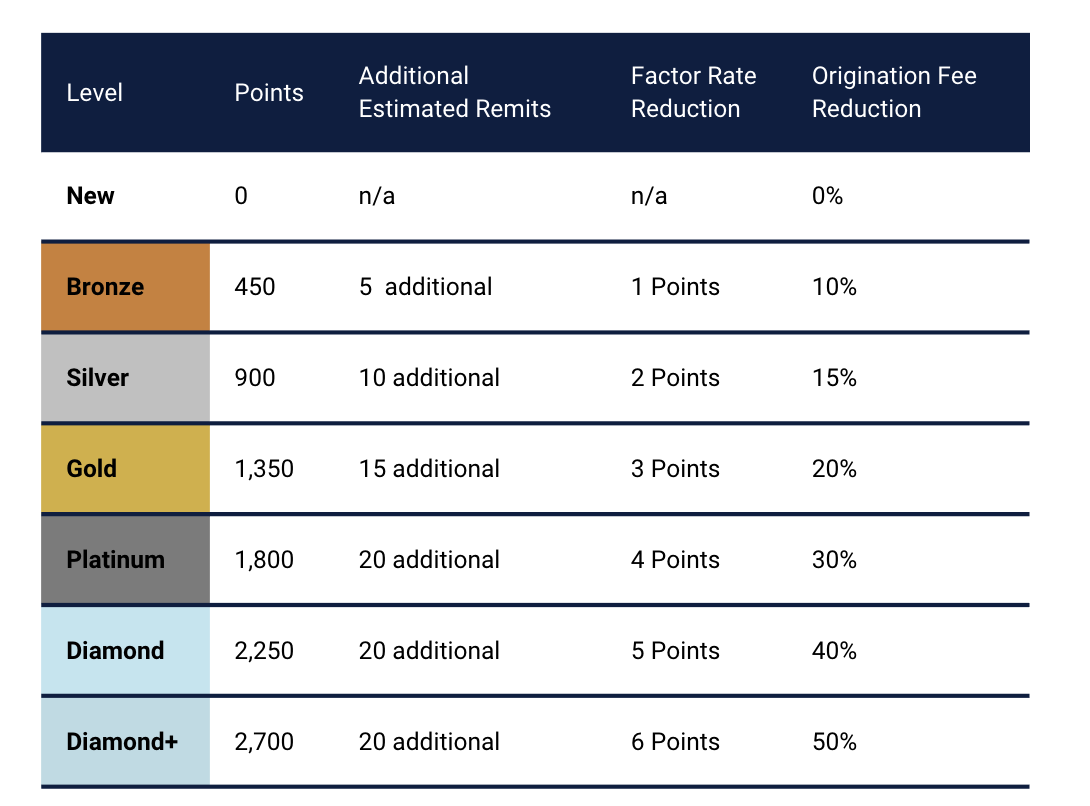
“There’s no need for a redemption email or request,” said Flagg. “Points don’t deduct, they continually accrue as long as merchants continue to remit, and discounts automatically associated with the loyalty level apply on their next offer.”
She added that it’s quickly been recognized as a great way to incentivize a merchant not to shop around. It’s also been used to secure a renewal or win back an old customer that had left. This logically helps the ISOs involved.
Most readers are already familiar with the Lendini brand through their constant mix of on- and offline marketing. Members of their team usually show up in large numbers at major industry events, for example. Flagg said that 2024 has been a big year for the company. “In Q2, we successfully launched Instant Offers, and we’re proud to report that we’re now averaging a turnaround time of under 5 minutes for offers up to $75,000,” she said. Their new mobile app, while still in beta, allows merchants to track offers, remittances, and engage with the Resolutions Team.
“Over the past two years, we’ve prioritized elevating the customer experience by creating accessible tools that empower merchants to navigate the financing process with ease and transparency,” Flagg said. “This is only the beginning. Funding Metrics is dedicated to continuously enhancing these experiences that put merchants in greater control of their business financing and making every step from offer to origination as seamless as possible.”
Trump, Republicans To Take Over in 2025
November 6, 2024 With the 2024 election results in, the regulatory and legislative environment for the small business finance industry could shift significantly at the federal level in the coming years. In particular, it will be worth paying specific attention to what happens with the Consumer Financial Protection Bureau (CFPB). As many readers are aware, the largest regulations ever imposed on the small business finance industry, promulgated by the CFPB, are slated to go in effect in July 2025. That date comes after fifteen literal years (Since Dodd-Frank was passed in 2010!) of delays caused by confusion, debates, and disputes over the CFPB’s right to exist, the meaning of the law’s statute, and court orders pushing it forward or temporarily delaying it. Feelings about the CFPB were so contentious under Trump’s last presidency that the agency temporarily rebranded itself as the BCFP (Bureau of Consumer Financial Protection) as a symbolic gesture of statutory defiance.
With the 2024 election results in, the regulatory and legislative environment for the small business finance industry could shift significantly at the federal level in the coming years. In particular, it will be worth paying specific attention to what happens with the Consumer Financial Protection Bureau (CFPB). As many readers are aware, the largest regulations ever imposed on the small business finance industry, promulgated by the CFPB, are slated to go in effect in July 2025. That date comes after fifteen literal years (Since Dodd-Frank was passed in 2010!) of delays caused by confusion, debates, and disputes over the CFPB’s right to exist, the meaning of the law’s statute, and court orders pushing it forward or temporarily delaying it. Feelings about the CFPB were so contentious under Trump’s last presidency that the agency temporarily rebranded itself as the BCFP (Bureau of Consumer Financial Protection) as a symbolic gesture of statutory defiance.
The CFPB’s looming oversight of small business finance starting next year had particularly alarmed those in the merchant cash advance space. Its current head, Rohit Chopra, had previously disclosed that his mission was to “wipe out” merchant cash advance companies. He had also said that the structure of their products “may be a sham.” In response, one trade group representing such companies filed a lawsuit against the CFPB earlier this year. That case has not been decided yet. Other segments of the small business finance industry will be watching the CFPB closely in 2025 as well.
Another outcome is that it could mean that individual states that lean the other way politically become more aggressive. As readers are aware, the stream of disclosure legislation over the last few years all came from the state level. It’s possible that environment starts to accelerate even faster.
Meet the CAFE That Can Accelerate Your Fintech Startup
October 14, 2024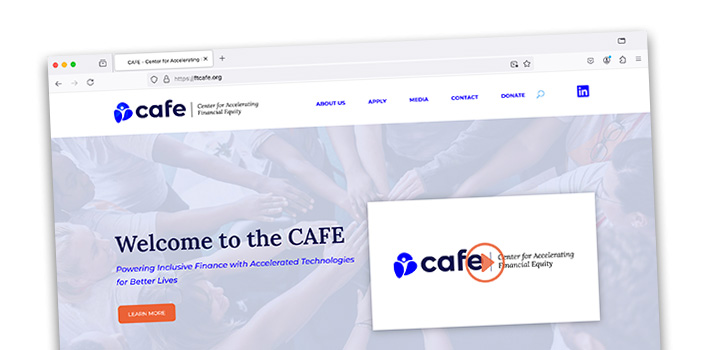 Newer fintechs on a mission to advance financial health and wellness for low-to-moderate income individuals and underserved populations may not have to weather the startup journey alone. Inside the Fintech Innovation Hub, situated on University of Delaware’s STAR campus, is the non-profit Center for Advancing Financial Equity (CAFE). Supported by numerous partnerships including the Small Business Administration, Discover, the Small Business Development Center (SBDC), the American Bankers Association, and more, one of its signature initiatives is its bi-annual fintech accelerator, which aims to identify, support and grow extraordinary financial accelerated technologies and innovations. Hundreds of companies apply but only six get selected for each cohort of the accelerator. One of those selected this past Spring, Parlay, offers a powerful tool to improve small business loan applications. Another, Stratyfy, offers interpretable AI solutions that enable financial institutions to make more accurate, efficient, and fair financial decisions in credit risk, fraud, and compliance.
Newer fintechs on a mission to advance financial health and wellness for low-to-moderate income individuals and underserved populations may not have to weather the startup journey alone. Inside the Fintech Innovation Hub, situated on University of Delaware’s STAR campus, is the non-profit Center for Advancing Financial Equity (CAFE). Supported by numerous partnerships including the Small Business Administration, Discover, the Small Business Development Center (SBDC), the American Bankers Association, and more, one of its signature initiatives is its bi-annual fintech accelerator, which aims to identify, support and grow extraordinary financial accelerated technologies and innovations. Hundreds of companies apply but only six get selected for each cohort of the accelerator. One of those selected this past Spring, Parlay, offers a powerful tool to improve small business loan applications. Another, Stratyfy, offers interpretable AI solutions that enable financial institutions to make more accurate, efficient, and fair financial decisions in credit risk, fraud, and compliance.
Being accepted into CAFE requires a startup to already be up and operating.
“[These companies are] in market, the products are built already,” said Kristen Castell, Managing Director of CAFE. “They do have some customers, some of them are enterprise customers like banks, a full time team, and many of them have raised money already.”
Castell tells deBanked that the companies applying to the accelerator still need a lot of help in terms of making industry connections, scaling distribution, and developing the right partnerships. It’s an eight-week program, some of which takes place on location at the Fintech Innovation Hub in Delaware. The rest is virtual. Applicants and those selected can be from anywhere in the US. The founders, all connected by some level of common interest, are bound to form a bond throughout the unique experience. Last week for example, the members of the Fall cohort went on a field trip to the Wilmington, Delaware headquarters of Best Egg (F/K/A Marlette), an online lender, and got to learn about their path from being a startup in 2014 to the fintech stalwart they are today.
“This time, we have some opportunities to meet the American Bankers Association in Washington, DC,” Castell said. “We also meet the regulators at CFPB in Washington, DC. There’s some other conference opportunities like another accelerator called RevTech Labs that has an investor conference in Charlotte. So there’s an opportunity to pitch there to investors.”
The learning curve for any company coming through the accelerator is dramatically shortened by the access and guidance they get, whether that be from other fintechs, from bankers, from regulators, or the largest fintech trade association, the American Fintech Council.
At the end of it all there’s a demo day in person at the Fintech Innovation Hub in Delaware, where they present to investors, bankers, academics, industry and community leaders, non-profit organizations and entrepreneurs alike to show what they’re made of.
Castell, a former banker herself that previously worked for JPMorgan and BlackRock, also experienced a taste of being a fintech entrepreneur when she became interested in impact investing. It’s a scene she loves. When the plan for CAFE was in development, the opportunity to be involved with financial inclusion, technology, and startups all in one was something she really wanted to take on.
“It’s really been an incredible opportunity to build the organization, to build the program, to work with all these partners, to bring all these stakeholders that I had mentioned earlier in and we’re not done,” she said. “We’re just getting started.”
The six members of the Fall cohort are Carvertise, GivingCredit, Kredit Academy, Odynn, Salus, and Prismm. Sponsors include the American Bankers Association (ABA), Siegfried Advisory, Delaware Prosperity Partnership (DPP), Wolf & Co, Delaware Tech Park, deBanked, and Discover Financial Services.
deBanked is expected to attend the demo day in November.
How Erica Bell of Tax Guard Won Second in The Poker Tournament
October 13, 2024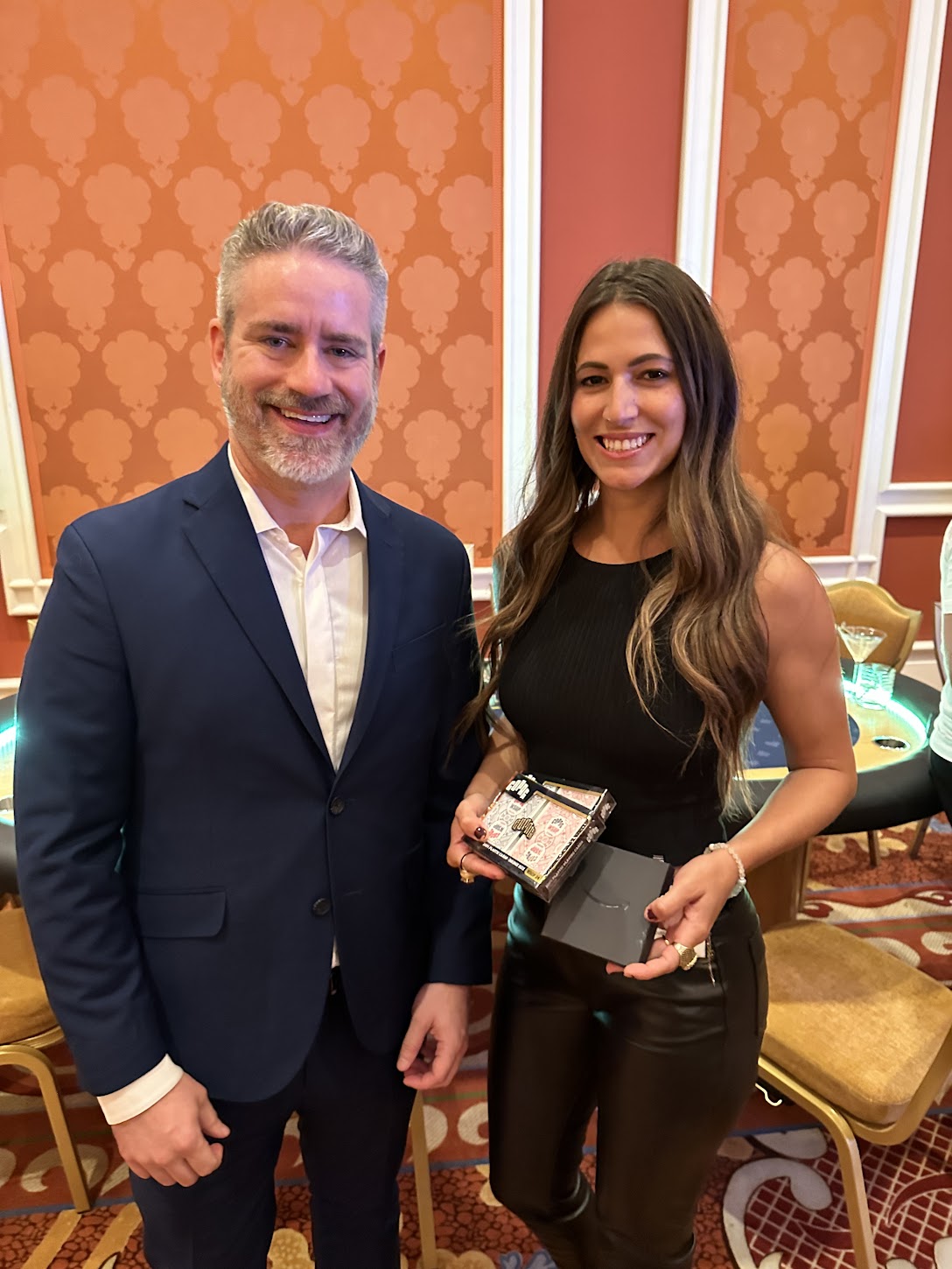
When the final hand of the B2B Finance Expo’s official poker tournament had concluded, Erica Bell, a Business Development Account Executive for Tax Guard, walked away with 2nd place. Bell has enjoyed poker for a long time and knows the game well. She’s even played in tournaments at the Ameristar Casino in Blackhawk, Colorado and won 1st place in one of them.
“The game’s strategy is what I truly enjoy,” Bell told deBanked. “A couple of individuals came up to me and congratulated me [on coming in 2nd].”
Bell, who at least took home a small prize, has worked for Tax Guard for 5 and a half years. For those not familiar, “Tax Guard is a 3rd party due diligence company who provides real-time insights into hidden tax debt of individuals and businesses by retrieving and analyzing IRS data directly from the source, the IRS,” she says.
The company’s services are primarily used by commercial lenders and financial institutions to assess tax-related risks associated with borrowers. Tax Guard is widely known throughout the industry and has been frequently referenced on deBanked. The company’s co-founder and CEO, Hansen Rada, even did a Zoom interview with deBanked during the early lockdown era of Covid.
The company’s value is pretty straightforward, a lot of tax debt is not easily discoverable, and they’ll get the info you don’t even know you’re missing straight from the source.
“By offering earlier visibility into potential tax issues, liabilities, liens, & levies, we help our customers make more informed lending decisions and mitigate financial risks,” Bell explains.
And if there is a hidden tax issue, Tax Guard can proactively work to resolve it and even negotiate a payment plan. One downside of ignoring tax debt as a lender is having to compete with the IRS when they ultimately move to enforce collection.
Clients can use the Tax Guard portal to run reports or integrate their API right into a CRM. Other critical information can be obtained as well including a wage and income transcript from the IRS. “This includes data from W-2s, 1099s, and other income forms, as well as withholding details,” Bell says. “This data provides a comprehensive view of a taxpayer’s reported income and can be critical when assessing financial risks, resolving discrepancies and verifying financial details.”
Obviously, Bell says that anyone interested in learning more can reach out to her directly.
“My role is highly dynamic, being sales, strategic partnership and relationship focused,” Bell says. “I really enjoy working with extremely talented people at Tax Guard, meeting new folks in the finance industry and learning from their perspectives.”
She’s also apparently planning to host her own upcoming friendly poker tournament so it’s safe to say she has no intention of letting her skills get rusty.
How Cesar Valero Won The Tournament And Gets Deals Done
October 2, 2024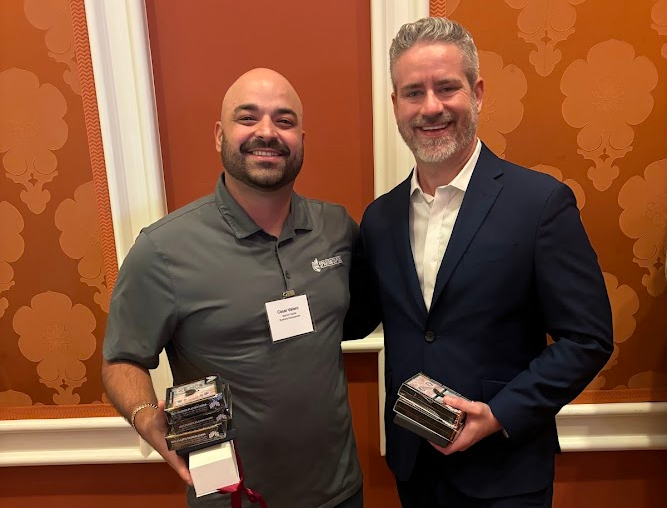
When Cesar Valero, Business Development Executive at Spartan Capital, sat down at one of the starting poker tables late last month to participate in the kick-off tournament for B2B Finance Expo, it had been almost exactly a year since he last played. His colleague Ryan Capella had finished second that time, which coincidentally had also been for a business event in Las Vegas. But here at B2B in 2024, the Spartan team was competing against a mix of players eager to show off their skills, some of whom play semi-professionally on the side.
According to Valero, they didn’t do any kind of practice ahead of time. “Frank [the CEO] just said ‘make sure you represent,'” he said. And after two and a half hours of impressive play that’s exactly what he did. The dealer and a hired pit boss keeping an eye on all the cards declared Valero the winner where he took home the grand prize gold bracelet and other goodies.
“We were actually really happy because we noticed that–obviously we celebrated a little bit–and then noticed after we’re like, ‘of the top four positions of the last two years, we [Spartan] have two’ that’s pretty good,” Valero said.
But more importantly, at the industry’s largest conference of the year, everyone suddenly knew who Valero was if they didn’t before.
“You can flat out tell them the best marketing at B2B was to win the poker tournament,” Valero said. People came up to him throughout the next two days calling him out by name. “Hey, Cesar!” they shouted, after having heard about his win.
And being the guy everybody wants to talk to is pretty much his job anyway. Spartan Capital provides revenue based financing and works with a large number of referral partners. Valero’s day-to-day is typically spent communicating with ISOs, whether it be phone calls or Zoom calls or in-office meetings, he is catering to what they need and trying to get deals funded. When asked if having a relationship with an ISO is an important part of the job, he said it’s the whole job.
“We’re a fair funder,” he said of Spartan. “We really don’t snub anybody out. Whether you’re the biggest guy in the space or the smallest guy in the space, we’re going to do our best to give you the best customer service we can. Our reps, pretty much nobody is a brand new rep. Everybody’s got experience. They know what they’re talking about.”
“Most deals are pretty straightforward,” he said, “but you always have that 10,15,20% that need a little more love…so it’s a fast paced environment and just try to keep up with it, make sure we’re doing the right service to our customers whether it be an ISO or a [merchant].”
Overall, Valero feels like the industry is on a strong trajectory, especially with tech and e-commerce platforms having rushed in to offer similar funding products to their customers.
“If they’re in it, they see the demand right?” he exclaimed, “and if they’re putting out billions of dollars like I see every quarter in press releases from Amazon or from PayPal or from one of the big players, they’re out there and they’re creating buzz… so better quality borrowers will be flowing in because the need is there across the board.”
Valero isn’t exaggerating about the fast pace. After having gone from the flow of deals to Vegas to even more deals, he couldn’t afford to let our interview about his big win go over the allotted time.
“I got about an hour and 15 minutes to the wire cut-off,” he said emphatically while thanking me for the call. “Let me see if I can do a couple more deals!”






























